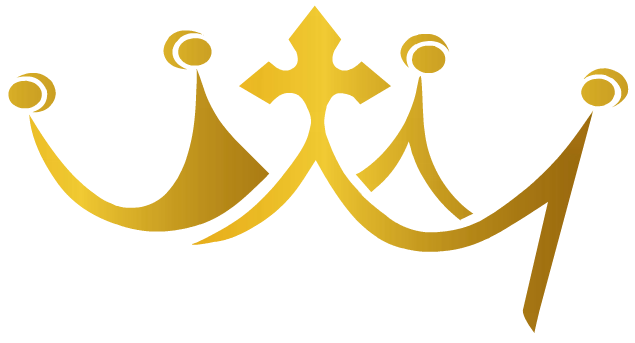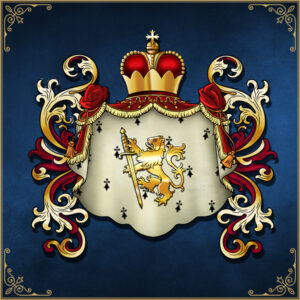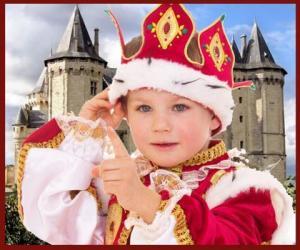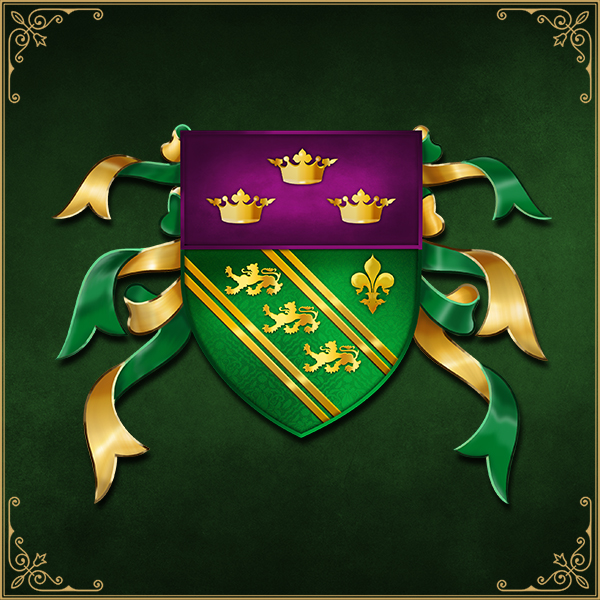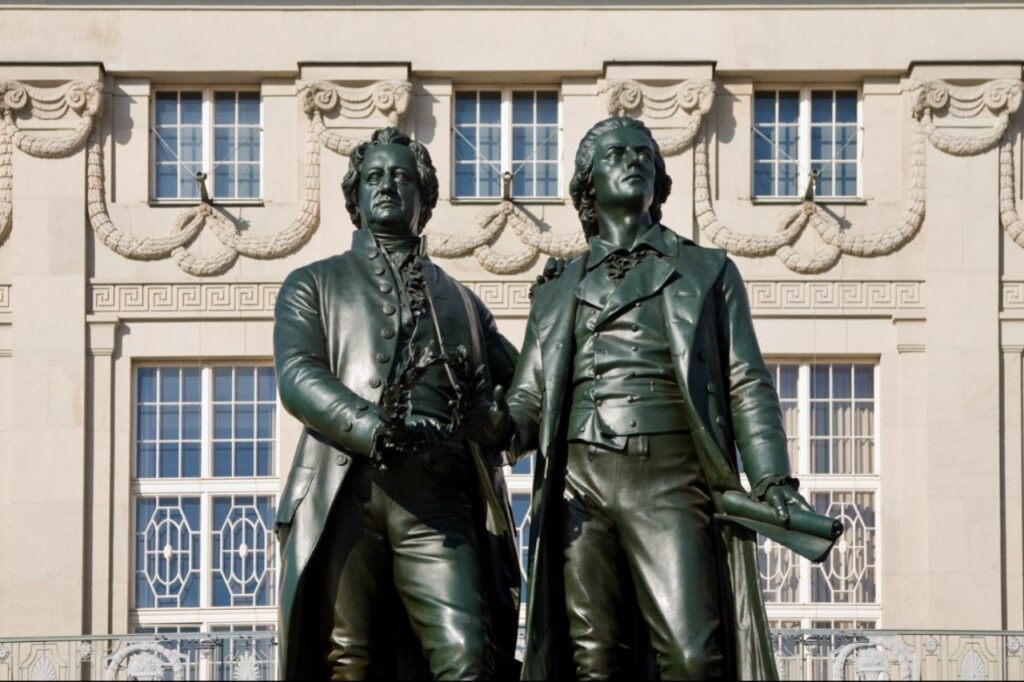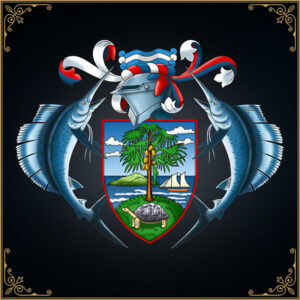The influence of the nobility has been greater before. Nevertheless, the title of nobility and noble rank still have a resounding splendor. Interest in the nobility remains high. In the gossip rags, nobles fill entire pages with their doings. But what titles of nobility actually exist? How has the nobility developed over time? What is the ranking of the nobility?
Rank in nobility
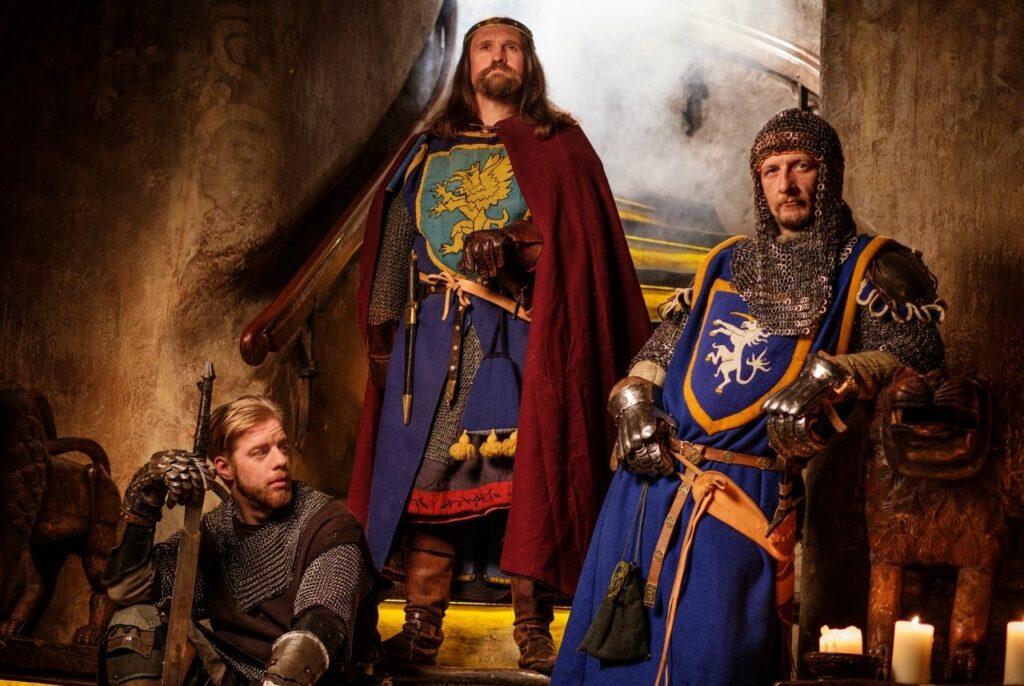
The influence of the nobility has been greater before. Nevertheless, the title of nobility and noble rank still have a resounding splendor. Interest in the nobility remains high. In the gossip rags, nobles fill entire pages with their doings. But what titles of nobility actually exist? How has the nobility developed over time? What is the ranking of the nobility?
The development of the nobility over time
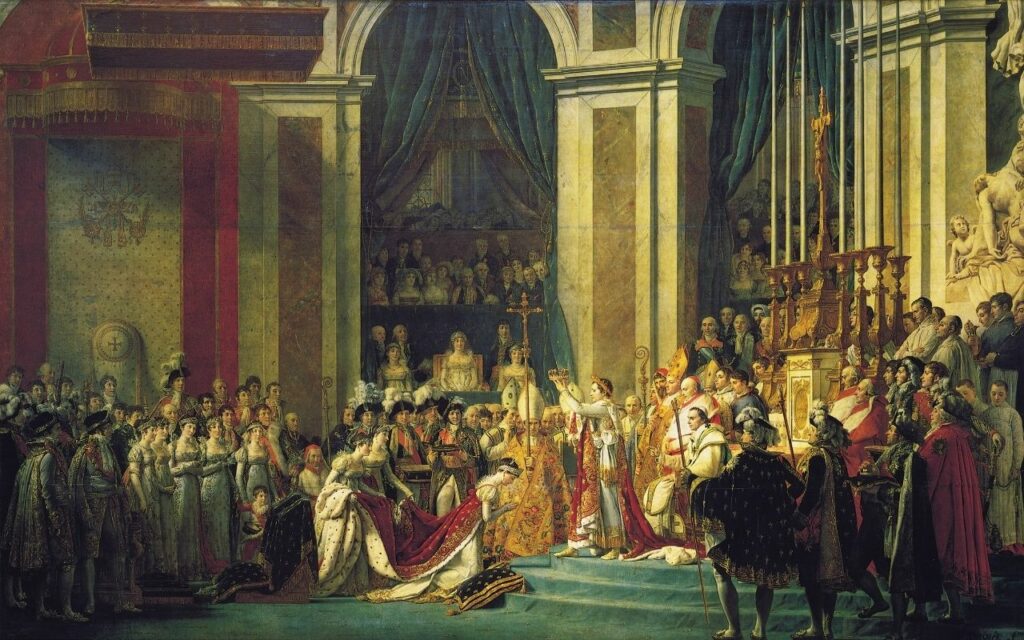
In the Middle Ages, the nobility was the leading class of society. Led by the king, the nobles organized the entire state. The higher the rank of the nobility, the higher was their social classification and importance. In addition, there were considerable differences between the high and low nobility. The high nobility was shaped by the king and emperor as well as the princes. The members of the high nobility took care of the duties of the government, while the lower nobility was merely privileged. The lower nobility did not pay any taxes in the Middle Ages and could make a career in the state. Compared to the common people and bourgeoisie. the nobility had more social participation, participation in cultural life and a certain position of power.
In the Middle Ages, the position of power of the nobility suffered. Over time, the bourgeoisie increasingly gained economic and also political influence. The French Revolution was then the beginning of the end of aristocratic supremacy. In Germany, the end of the Holy Roman Empire of the German Nation in 1806 was already a step towards the disempowerment of the nobility. This lasted for over a century. Then in 1918 the deposition of the German Emperor took place. The proclamation of the Weimar Republic and the adoption of the Imperial Constitution meant that the nobility lost its prerogatives. The title of nobility was henceforth only a part of the name. The name affix henceforth meant no more power.
The different ranks
Numerous titles of nobility often make the overview difficult for the layman. In the following article you will find a list of all noble titles from Europe. This ranges from the Middle Ages to modern times. In the explanations also information about predicate titles and nobility predicate are contained. The listing is in descending order. For from the emperor to the nobleman there are numerous titles of nobility.
Emperor / Tsar
The highest noble ruler title is the emperor. This was called Tsar in Russian, female rulers in Russia were called Tsaritsa. The descendants of a tsar bear the title of prince or princess. This is different with the Russian tsars. Here the son is called Tsarevich and the daughter Tsareva. Also common are the terms Grand Prince or Grand Duchess for the descendants of a tsar.
The emperor is addressed as "Imperial Majesty". Descendants are referred to as Imperial Highness.
King
After the emperor comes the king. The king is the second highest noble title in the noble order. The king or queen are the highest dignitaries in a monarchy. In addition to the role of legislative power, the king also takes care of jurisdiction and executive decisions. The noble king thus combines all the powers of the state.
The offspring of the king and queen are also referred to as prince and princess. When subjects address the king directly, it is done with "Royal Majesty". The prince and princess are also the "Royal Highness" here.
Archduke
The archduke is a title of nobility that belonged to the rulers of an archduchy. These were in particular the members of the Habsburgs or the Archduchy of Austria. The descendants of the houses were also considered archdukes. The form of address changed over the years. Initially, the title was Durchlauchtigste/r (Most Serene), while later the predicate title was also Kaiserliche or Königliche Hoheit (Imperial or Royal Highness).
Grand Duke
Another duke was the so-called grand duke. This title of nobility was due to those princes whose rank was between the duke and the respective king. The grand duke thus had less power than the king, but mostly more influence than a conventional duke. The descendants were often also considered prince and princess. It was also common to address the children as hereditary grand duke or grand duchess. The title "Allerdurchlauchigste/r" (Most Serene) was common as a predicate title. In certain grand duchies, such as Hesse, Luxembourg or Baden, a different form of address was preferred. Here, the grand duke was the Royal Highness.
Prince Elector
The Elector was the highest-ranking prince in the Holy Roman Empire. The Electors alone had the authority and power to decide the election of the Roman-German King in the 13th century. The elector could also hold various titles of nobility. Electors were for example landgraves, archbishops or even kings. The first composition of the electoral committee of a king consisted of seven electors. Four of them had the honour of nobility from a secular point of view, while three electors were of ecclesiastical origin. In the 17th century the number increased to nine electors. Later, the so-called Electoral College, which met to elect the king, even consisted of ten members.
After the dissolution of the Holy Roman Empire by Napoleon, there was only one elector. Only Hesse-Kassel remained an electorate. Legally, the Elector was henceforth on a par with the Landgrave. In the course of time the title for an elector was Durchlauchigste/r or Königliche Hoheit. In contrast, the children were called Kurprinz and Kurprinzessin.
Duke
The origin of the noble title of duke is rooted in Germanic history. The duke was the Germanic army commander. In the course of time, the duke became a royal office holder, who was primarily responsible for military tasks. The salutation of the ruling duke was "Royal Highness". After the dissolution of the Holy Roman Empire of the German Nation, the dukes lost their rights of rule. From then on, the dukes were simply sovereigns and were addressed as "Serene Highness".
Landgrave
The landgrave is a noble title that occurs exclusively in German-speaking countries. Especially in Thuringia and Hesse there were some landgraves. In 1803, the Hessian Landgrave was elevated to the rank of Elector. The landgraves were equal to the rank of duke. The descendants are the prince and the princess. Only the last Landgrave of Hesse-Homburg was called Royal Highness. With all other landgraves the predicate titles Highness and Serene Highness applied.
Count Palatine
In history, the Count Palatine had the task of assisting the king and emperor in the administration. The Palgrave presided over the court at the royal court. Petitioners had to come to the Count Palatine and present their concerns to him. Initially, there was a Palgrave in each duchy. Later, there was only the Count Palatine of the Rhine, as most of the counties were assigned to a large principality over the years. The descendants were also regarded as prince and princess. The form of address for the Count Palatine was usually "Durchlaucht". Exceptionally, the Elector of things as Count Palatine was addressed as "Royal Highness".
Marquis
Until the end of the 11th century, the nobles in the border area of the empire were called margraves. This leadership role was not elaborated. In the Holy Roman Empire, the title of nobility no longer had a geographical reference. Rather, the noble title of margrave stood for a rank within the imperial princely hierarchy. The margrave was equal to the rank of duke in the Middle Ages. The prestige was not the same in every place. In many countries the margrave belonged to the lower nobility. There was no ruling function for the margrave. The form of address varied from "Durchlaucht" (Serene Highness) to "Erlaucht" (Illustrious): the descendants are the prince and princess even among the lower nobility.
Prince
The prince was the ruler over various lands. If the land was designated as a principality, the princes ruled over land. The form of address of the princes was "High Princely Serene Highness". Few princes possessed the special honor of being addressed as Highness. The hereditary princes and princesses were the descendants of the princes. Partly the title of the prince was lost in the history also only honorary. Then no rights of rule and power went along with the title. Rather, the holder of the title of nobility did not belong to the high nobility at this rank. Otto Prince von Bismarck is probably the best known of his kind.
Baron / Baron
On the lowest level of the so-called titular nobility are the baron and baron. Below that, there are only the nobles, for whom there is only a nobility predicate such as "von" or "zu", but no nobility title. Equal are the baron and the baron. The male descendants carry on the title, while the female descendants are considered Baroness or Freiin. The relatives are addressed as Highborn, which corresponds to the noble status of the nobility.
Knight / Noble / Lord of / Lady of / Countryman of
At the bottom of the order of precedence are the knights, noble, lord of, lady of, and countryman of. To be knighted, aspirants had to meet numerous criteria. From the 19th century onwards, knights then belonged to a noble class of their own. Those who were knighted received a title of nobility.
In contrast, the title "noble" was not a title of nobility, but merely a noble predicate. This applied to the entire family - both parents and descendants was called noble / noble. In the order of rank, the noble is below the knight beaten.
The "Lord" used to be the status designation. Herr von or Frau von were considered noble designations. In contrast, the untitled nobility in a country was referred to as Landmann. All lower titles of nobility were addressed as Hochwohlgeboren.
